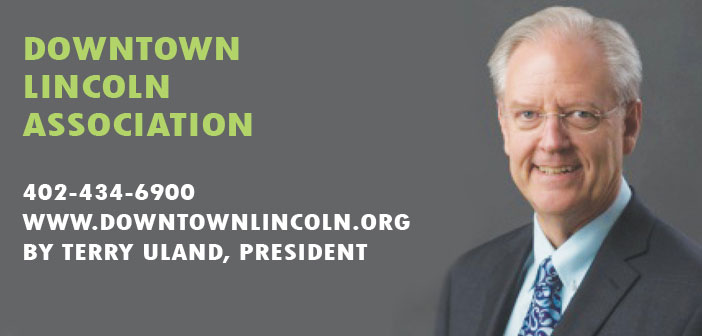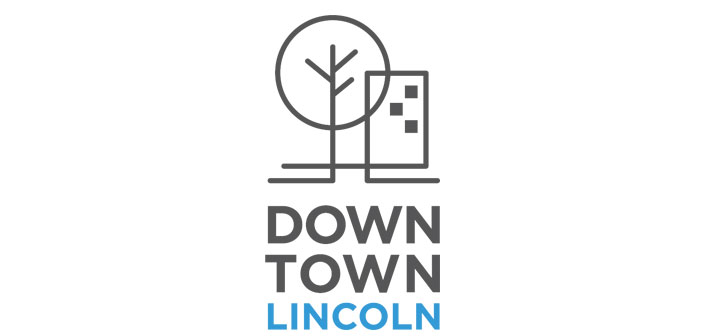Planting the Seeds for a Pollinator Flyway
You don’t need a lush garden or an expansive park to create a haven for pollinators. So why not make one right through Downtown Lincoln? That’s the idea behind the 13th Street Pollinator Flyway, which is in the works to become a reality this Spring.
The community project was conceived by Nebraska Wildlife Federation’s Carolyn Butler, Monarch Butterfly and Other Pollinator program director. It entails planting native pollinator plants in the 59 permanent planting beds that line 13th Street along the eight-block stretch between R Street and the Lincoln Mall. Lincoln will follow the footsteps of other successful urban flyways in cities like Chicago and Austin. Butler was inspired to create a longer downtown flyway after she helped put together a small pollinator garden and educational signage in front of the Foundry coworking space on 14th street.
By establishing native pollinator plants in the beds such as milkweed, which is the only plant monarchs lay their eggs on and the only plant monarch caterpillars will eat, the flyway will become an effective habitat for pollinators—that is, the birds, bees, butterflies and moths that cause plants to produce fruits and seeds and are essential to our ecosystem. Think about the flyway as a safe rest stop for butterflies, as well as a space to educate the public about pollinators in peril and the value of planting water-wise, perennial native plants that support Nebraska’s biodiversity.
“Monarchs are important to Nebraska, but they’re important to our whole world,” Butler said. “In the late 90s, there were billions of monarchs migrating from southern Mexico up to Canada. Older people, if you talk to them, can remember seeing them migrate. They can remember trees and shrubs just dripping with monarchs. We don’t want to lose that.”
The number of monarch butterflies have declined 90% over the past two decades due to habitat loss, use of pesticides and herbicides, and extreme weather events. Butler said that some people say monarchs are the “canary in the coalmine.”
With the help of University of Nebraska-Lincoln environmental studies students, the Downtown Lincoln Association will design and oversee the planting of beds and long-term maintenance. The chemical-free native plants will be supplied by the Nebraska Statewide Arboretum, and Nebraska Wildlife will coordinate the project and serve as a communication liaison. However, Butler said the key to a successful pollinator garden is getting the community engaged. She’ll be focusing on finding ways to get the downtown businesses along 13th street to inspire their staff to take pride in the flyway.
“When we’re planting in front of their buildings, they could, for example, have their staff sign up to be a part of that,” Butler said. “Or they could have a 30-minute brown bag lunch to learn about pollinators. [The community] can be a part of the process. So if you see a cigarette butt out there, pick it up, because this is your garden, too.”
National Pollinator Week is June 17–23. Butler hopes to plan several events centered around the flyway to celebrate the week, like walking tours with horticulturists and entomologists as well as family-friendly activities.
“We need native plants on the ground,” she said. “They’re water-wise, they’re beautiful, they’re the best biodiversity protection for our native species. It’ll be right in the heart of town and I think it can really create a gem for all of us.”
Founded in 1967, the Downtown Lincoln Association provides services and champions initiatives for maintaining and enhancing our vibrant downtown. Our vision is to create an energetic downtown environment where we live, learn, work, invest and play. DLA has evolved into a multi-faceted organization supporting a wide range of programs and activities including maintenance, economic development and advocacy.
For a complete listing of downtown businesses, events and residences visit downtownlincoln.org. ‘Like’ us on Facebook at facebook.com/downtownlincoln.


